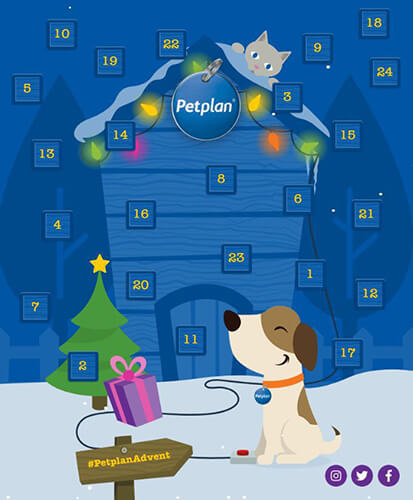How do dogs change as they get older? What’s normal behaviour in an elderly dog, and what’s not? Help your ageing pooch get the best out of life with our expert guide.
You know your dog, and how he or she responds to their environment, better than anybody. But as your pet ages, you may notice new characteristics, and even personality changes, developing.
‘Like all older mammals, a dog’s brain becomes less flexible,’ says clinical animal behaviourist Claire Hargrave. ‘This could result in them being a bit less competent at dealing with their world. These changes in a dog’s behavioural and emotional development are entirely natural. It’s always wise to consult with a vet, but many changes simply mean adapting some of the ways you care for them.’
Your senior dog is bad-tempered
A snappy response from your dog could indicate that he’s in pain. ‘By the age of eight, a dog has an 80% chance of having arthritis,’ explains Claire. ‘When your dog looks fit, it’s difficult to register that his tolerance for play or exercise might be declining. But if he’s less willing to be picked up and take part in the rough and tumble of family life, it could be down to muscular or skeletal problems.’
Older dogs tend to lie down for longer periods and stiffen up, so taking a few steps can be debilitating. Your vet can prescribe medication and advise on symptom management. He’ll also check for other health issues like diabetes, thyroid and hip dysplasia, which could affect your dog’s temperament.
What you can do:
Go for shorter walks and add new routes to keep your dog stimulated and mobilised. A park gives your dog space to rest, or socialise with other dogs if he wants to. Being in water is a great way to ease joint pain, so try encouraging your dog to take a swim.

Dog Christmas presents, all wrapped up
We want to help you treat your pet. So, this Christmas, we’re giving away sleigh loads of prizes with our ultimate pet advent calendar. Visit the calendar for your chance to win.
Your dog is disobedient
A dog’s senses of sight, hearing and smell lessen with age and they can appear less obedient. ‘Because dogs rely so heavily on these faculties, their loss may lead to anxiety and avoidance of once-straightforward situations,’ says Claire.
If disobedience is accompanied by increased appetite and mishaps at night, it could signal Cushing’s disease, in which a non-cancerous tumour on the pituitary gland results in over-production of the stress hormone cortisol. Early detection and treatment will bring your dog’s energy and bounce back.
What you can do:
Now’s the time to teach your old dog new tricks. For hearing loss, use hand signals instead of voice commands. For dogs with sight loss, avoid moving the furniture, as this will confuse them. Position textured rugs to guide them away from hazards.
Thankfully, the canine sense of smell is so incredible that dogs with sight loss can still get the benefit of walks. Just be sure to keep your dog on a lead, so he doesn’t wander off and get lost.
Never startle a dog with hearing or sight problems. Approach calmly; say their name; and hold out a biscuit so they can smell you approaching.
Your dog is listless and confused
Age brings an increased risk of canine cognitive dysfunction (CCD) or doggie dementia. Subtle signs include less enthusiasm for walks or play, while more obvious ones include pacing or staring into space, endless barking or becoming silent, getting ‘stuck’ in a corner or appearing lost in places they know like the back of their paw. Night waking, whining and soiling are further indicators of CCD.
What you can do:
Make life as enjoyable as possible for a dog with dementia. Walk, play and interact with them on a daily basis. A food activity mat, in which you can hide dry food for them to discover, will keep their doggie neurones firing. Even when their interest is limited, daytime stimulation will keep levels of the ‘happy hormone’ dopamine raised. Activity also helps your dog sleep better at night.
Your dog is not eating
If there’s a sudden change in your dog’s appetite, it could signify something serious, like cancer, so it’s definitely an issue to get investigated. But a lack of interest in food could also be due to normal wear and tear of the mouth, gum disease or tooth decay.
What you can do:
Let the vet see to anything that’s wrong, to ensure infections don’t spread. Beyond that, make sure your dog’s teeth are clean, serve up softer food and avoid hard kibble to make eating less painful. Pliable rubber toys or a fleecy plush are easier on the gums and teeth and will keep an old dog entertained.
Has your dog’s behaviour changed over time? We’d love to hear how you’ve tackled any issues – use the #PethoodStories tag on Facebook, Instagram and X!